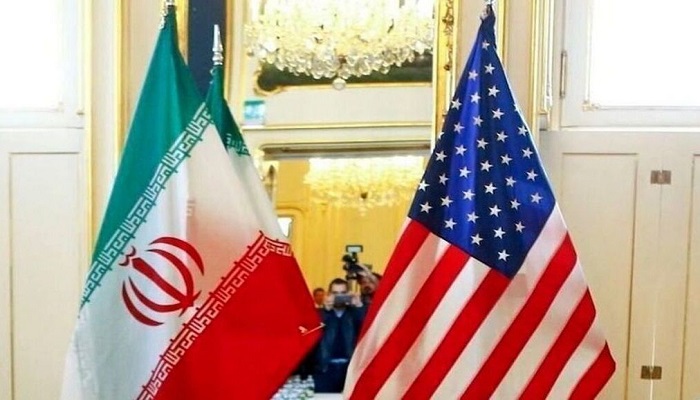PNN – On the eve of the Oman talks, the US Treasury Department imposed new sanctions in line with the maximum pressure policy of the US President Donald Trump administration against Iran, announcing: It has sanctioned an individual and several entities based in India and the United Arab Emirates in connection with Iran.
According to the report of Pakistan News Network, the Treasury Department claimed on Thursday local time that it has targeted a network that transports Iranian oil worth hundreds of millions of dollars.
The US Treasury Department claimed: Today, the Treasury Department’s Office of Foreign Assets Control (OFAC) is sanctioning a United Arab Emirates-based Indian national, Jugwinder Singh Brar, who owns several shipping companies and a fleet of nearly 30 vessels, many of which operate as part of Iran’s “shadow fleet.”
The US Treasury Department claimed that OFAC is also sanctioning two UAE-based entities and two India-based entities that own and operate the Berar vessels that transported Iranian oil on behalf of the National Iranian Oil Company (NIOC) and the Iranian military.
The statement claims that Berar ships are involved in the transfer of Iranian oil on a ship-to-ship (STS) basis in the waters of Iraq, Iran, the UAE, and the Gulf of Oman. These shipments then end up in the hands of other facilitators who mix the oil or fuel with products from other countries and forge shipping documents to hide the connection to Iran, allowing these shipments to reach the international market.
US Treasury Secretary Scott Besant claimed: The Iranian government relies on a network of shippers and brokers, such as Berar and his companies, to sell oil and finance its destabilizing activities. The United States remains focused on disrupting all elements of Iran’s oil exports, especially those who seek to profit from this trade.
The US Treasury Department has placed 30 ships and tankers flying the flags of Panama, Cameroon, Gambia, Antigua and Barbuda, Palau, Barbados, and the Cook Islands on its sanctions list in Iran-related sanctions.
US President Donald Trump, who has repeatedly expressed hope for reaching an agreement with Iran during his second term, claimed on February 4, 2025, by signing a memorandum to continue the policy of maximum pressure against the Islamic Republic of Iran that he was ready to talk to the Iranian President.
Claiming that he had “hesitated” to sign the memorandum, he claimed: “This is very difficult for Iran. I hope we don’t have to use it too much. We’ll see if we can reach an agreement with Iran.”
Despite signing a memorandum imposing a maximum pressure policy on Tehran, the US President announced in an interview with the country’s Fox Business news network on March 7, 2025, that he had sent a letter to the Supreme Leader of Iran and requested negotiations.
Anwar Gargash, diplomatic advisor to the president of the United Arab Emirates, arrived in Tehran at the head of an official delegation and met with Iranian Foreign Minister Seyyed Abbas Araqchi and delivered Trump’s letter.
Following Trump’s remarks, Iran’s foreign minister announced that indirect talks between Iran and the United States will begin in Oman on Saturday. Araghchi wrote on X Network: Iran and the United States will meet in Oman on Saturday for indirect talks at the level of high officials. This is an opportunity and also a test. The ball is in America’s court.
The Iranian Foreign Minister emphasized: Given President Donald Trump’s statements on Monday, Iran is ready to engage seriously and enter into dialogue with the aim of reaching an agreement. We will meet in Oman on Saturday for indirect talks. This meeting is as much an opportunity as it is a test.
US government officials continue to repeat their contradictory statements and actions, threatening military action and calling for direct negotiations with the Islamic Republic of Iran.

